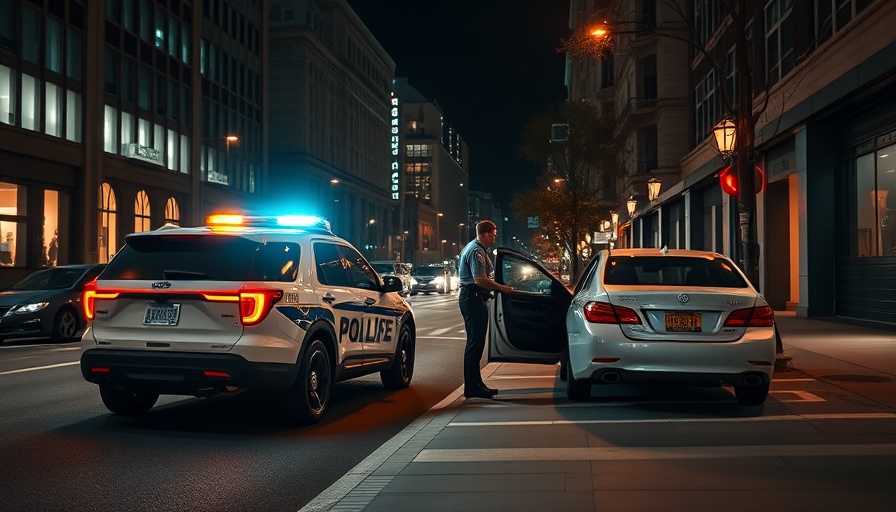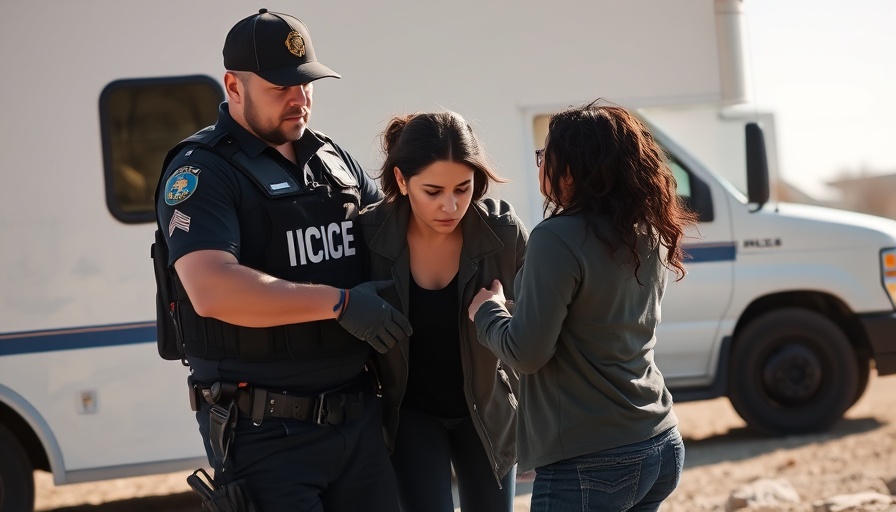
What Happened on That Fateful Night?
On March 31, LAPD Lieutenant Matthew Ensley was involved in a serious car accident while driving under the influence. The crash occurred on the 605 Freeway when his Audi collided with a Toyota Camry, driven by 32-year-old Mario De La Cruz Jr. The incident left both De La Cruz and his passenger injured, requiring medical attention at UCI Health. Ensley's alcohol-fueled decision not only endangered his life but also severely affected the lives of others, leading to a public outcry over the lack of accountability for law enforcement officers.
Consequences and Controversies Surrounding DUI Cases
Despite the severity of the situation, Ensley's outcome raises eyebrows and important questions about justice and privilege. Charged initially with felony DUI causing bodily injury, Ensley ultimately took a plea deal to misdemeanor charges. While many individuals may face harsher penalties for similar actions, Ensley was sentenced to just three years of probation, allowing him to keep his job within the LAPD. This leniency underscores a broader ongoing debate about the disparity in legal consequences faced by public officials compared to ordinary citizens.
The Public's Reaction: Calls for Accountability
Following the news of Ensley’s plea deal, there was an uproar from various community members and watchdog organizations. Many expressed outrage at the perceived preferential treatment of officers, highlighting concerns about the integrity of the police force. As social media posts circulated documenting the incident, critics argued that this reinforces the idea that law enforcement officers operate under a different legal standard than the general public.
The Larger Context of DUI in Law Enforcement
This case is part of a larger conversation about DUI cases among law enforcement. Research shows that officers may be more likely to receive leniency in their legal troubles, sparking discussions on police reform and accountability measures. The Ensley incident calls into question how police departments handle the inner workings of their personnel, especially regarding substance abuse and road safety.
Personal Responsibility and Public Safety
As we process the implications of this case, it’s critical to reflect on personal responsibility—especially as it relates to alcohol consumption and driving. Ensley’s justification for his actions suggests a troubling mindset; many may resonate with feelings of safety based on their physical capabilities. However, this mentality puts not just the driver but also innocent people on the road in danger.
Moving Towards a Healthier Society
In addition to individual responsibility, communities are called to take a stand against driving under the influence. Whether it’s promoting designated drivers, offering educational programs around the dangers of DUI, or advocating for stronger legal repercussions for intoxicated driving, we all must work towards cultivating a culture of accountability and safety.
What Comes Next?
As the community grapples with the implications of this incident, it's a reminder for all of us to think critically about the systems in place that govern our safety and justice. Lieutenant Matthew Ensley's case is not just about one officer; it’s about the larger structures that hold some accountable and others above the law. As citizens, we must demand fairness and transparency in law enforcement to promote a healthier, safer future for everyone.
 Add Row
Add Row  Add
Add 




Write A Comment